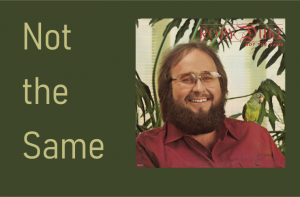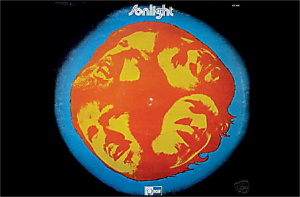July 9, 2012: Ephesians 5:1-14
Notes:
Paul begins this chapter of Ephesians by encouraging them to walk in love. Quickly (by verse 3), he moves to a contrast sinful activity and godly activity, as well as a contrast of darkness and light, citing the sins that entice believers walking in darkness rather than being a light to the world. The chapter shapes up as follows:
- Following God by walking in love (vs. 1-2)
- Following sin or following God (vs. 3-7)
- Walking in darkness or walking in light (vs. 8-14)
Following God by walking in love
Simply put, here Paul calls Christians to follow God:
- Follow God as His children (v. 1)
- Being justified by grace and adopted into the family of God, we are as sons and daughters.
- While we trust God for salvation, it is sometimes difficult to trust Him enough to follow Him.
- To do so, we need to trust God with the faith of a child.
- Walk in love, after the model of Jesus Christ (v. 2)
- Jesus demonstrated His love toward us in that while we were yet sinners, He gave himself up as an offering for us.
- Jesus (being part of the Godhead and God Himself) demonstrated His love in a manner that pleased the Father.
- Additionally, Jesus walked in love throughout His earthly ministry.
Following sin or following God
As stated earlier, Paul quickly transitions from a call to walk in love after God to contrasting the sinful activity of some Christians to the godly activity that pleases God. In this way, Paul details the manner in which we should follow God and not give in to the flesh:
- Stay clean! Do not “soil” your testimony with poor lifestyle choices. (v. 3)
- Paul cites three distinct “lifestyle” sins that can destroy a Christian’s testimony and walk with God:
- fornication
- uncleanness
- covetousness
- These are not activities that should be a part of any Christian’s life (“let them not be once named among you, as becometh saints”.
- Today’s society seems to glorify this manner of lifestyle, which is all the more reason to be separate from the world and live a clean life.
- Stay credible – do not “spoil” your testimony with poor conversation choices. (v. 4)
- Paul brings up three forms of conversation (in this case manners of speaking) that can hinder our walk with God:
- filthy language
- foolish talking
- jesting
- Our speech can destroy our credibility as Christians. We must be a people who are not only hearers of the Word, but doers of the Word. This is especially true of our speech. As James wrote in James 3:10, “Out of the same mouth proceedeth blessing and cursing. My brethren, these things ought not so to be.” For many Christians, their tongue and their conversation is their downfall.
- Stay focused – don’t let the world or its possessions become an idol. (vs. 5-7)
- Paul summarizes this contrast by grouping lifestyle and conversation into three manners of persons later identified as idolaters:
- whoremongers
- unclean persons
- covetous persons
- While some of this is strong language, it carries the message that as Christians, when we make the world our idol or our supreme desire, we are entering into an unclean affair because of our lust for the world and the things of the world.
- Someone who typically partakes of these types of activities is not seen as a genuine Christian and has no inheritance in Christ. Although modern churches sometimes discount sin using vain (or man-pleasing) words to allow an excuse for sinful behavior, these are things that demonstrate disobedience toward God and are worthy of His wrath.
- As Paul wrote in v.7 – “Be thee not therefore partakers with them”.
Walking in darkness or walking in light
After this strong contrast of sinfulness vs. godliness, Paul shows that Christians now have opportunity to walk in light rather than walk as they previously did, in darkness:
- Before salvation, we lived in a state of non-belief; without hope and in darkness. But, in Christ there is light and having Christ’s Spirit in us, we now can be light for He is light. (v. 8)
- Our fruit (results) as Christians are identified in three ways (v. 9):
- goodness
- righteousness
- truth
- Note that these fruits, which evidence our walk with God in the light, are identified by Paul as “proving what is acceptable unto the Lord”. (v. 10)
- Finally, Paul calls Christians to have no fellowship with darkness or what is done in the dark. He cites the fact that light exposes what is in darkness, so that every deed will be exposed. Note that Paul also mentions that some may be in darkness because they have not awakened to the light of Christ. This could imply that even in the Christian church there are some, who dressing to play the part, have not been truly converted through the grace of God. In this case, it is time to awake from their slumber and call upon the only name that can help them overcome the darkness that they inhabit – call on Jesus Christ and He will give light! (vs. 11-14)
Questions:
- Why did Paul say to be followers of God as “dear children”?
- What does it mean to walk in love?
- How did Jesus Christ demonstrate “walking in love”?
- What are some ways that Christian teens walk in darkness even after trusting Christ as Savior?
- Is it appropriate to straddle the fence between darkness and light? Why or why not?
- What are some worldly activities that tempt you and can cause a blemish to your testimony?
- How can a Christian teen walk in the light on a consistent basis?
- Looking at your youth group or small group, does its activities and its fellowship encourage activities of light? Why or why not?
- Why do you think that our fruit (results) as Christians is important?
- Is it be a genuine Christian and walk in darkness on a consistent basis? Why or why not?
















